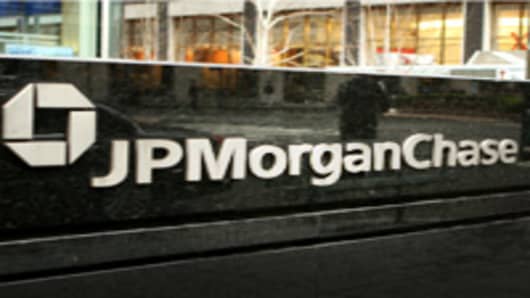The JP Morgan episodetouches on all the major protections of Dodd-Frank, which at the behest of Wall Street lobbying, will not go into effect for months, if not years, and therefore did not apply to the JP Morgan trades in question.
If the trades at issue were proprietary trading (as now appears to be the case), they would be banned by the Volcker Rule.
Even if these trades were not proprietary, but, as they almost surely were, trades not “cleared” on an exchange, they would have been banned by the Lincoln or push out rule. There is now a bi-partisan effort in the U.S. House of Representatives to dump the Lincoln Rule.
If Dodd-Frank had been in effect, these trades would almost certainly have been required to be cleared and transparently executed. They would have been priced by objective clearing operations on at least a weekly basis for purposes of collecting margin against the losing nature of the trades. As the trades lost value, margin would have been called for on a regular and systematic basis. (The losses would never have reached $2 billion without much earlier and corresponding regular calls for margin.) The losing nature of the trades would have been transparent to market observers and regulators for quite some time and the losses would not have piled up opaquely. It is almost certain that, at the very least, the Fed (not wanting to exacerbate its reputation for throwing taxpayer money at “Too Big To Fail” (TBTF) problems), would have backed JP Morgan off these trades long ago.
If even the trades were not required to be cleared, they still would have had to be reported to the public and to the regulators.
Now, if and when Dodd-Frank goes into effect (and if it does, it will be over the likes of JP Morgan's huge and expensive lobbying efforts against implementation), not only will the American taxpayer and the world economy be protected, but these TBTF banks would be protected against their own concededly reckless and highly risky actions.
It is a high irony that the “Too Big to Fail” bank at the forefront of a relentless effort to stop Dodd-Frank is JP Morgan itself.
Tune In:
Mr. Greenberger will be a guest on CNBC's "Closing Bell" today Friday, May 11 at 4:40pm/et to further discuss JP Morgan's loss.
Michael Greenberger is the Founder and Director of the Center for Health and Homeland Security (CHHS) at the University of Maryland and a professor at the School of Law. In 1999, Professor Greenberger began service as Counselor to the United States Attorney General, and then became the Justice Department's Principal Deputy Associate Attorney General. In 1997, Professor Greenberger left private practice to become the Director of the Division of Trading and Markets at the Commodity Futures Trading Commission (CFTC) where he served under CFTC Chairperson Brooksley Born.


